Apr 2, 2024 12:59 PM
Saxophonist, Sonic Explorer Casey Benjamin Dies at 45
Casey Benjamin, the alto saxophonist, vocalist, keyboardist and producer who stamped his distinctive sounds on the…
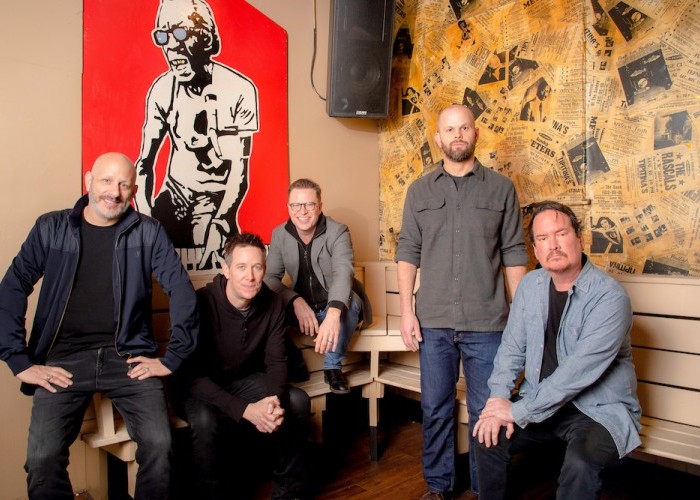
During two decades of performing at Tipitina’s, members of Galactic have amassed an abundance of memories tied to the historic New Orleans venue.
(Photo: Erika Goldring)Last fall, the members of New Orleans funk band Galactic signed paperwork to buy the historic Uptown music club Tipitina’s.
The sale made them the venue’s fourth owners, putting them at the helm of a local institution that’s played a central role in their musical development—as a band, as individual musicians and as New Orleans music fans. The five bandmates began talking about the potential purchase back in 2015, after their manager, Alex Brahl, suggested to owner Roland Von Kurnatowski that whenever he was ready to sell, he should think of Galactic.
“We all thought he was kind of crazy at first,” the band’s bassist, Robert Mercurio, admits.
By February 2018, though, Von Kurnatowski was ready to sell. For the musicians, it felt like the right move, and a bold one: to become guardians of a place to which they all felt an undeniable connection. Any romantic notions about their acquisition of the 800-person capacity club, however, soon dissipated as the group began what Galactic saxophonist Ben Ellman would describe as “a nightmare emotional roller-coaster” of a negotiation process during which deals were set forth then fell apart, “sometimes in the same day.”
Nine months later, the ups and downs had become so stressful that Mercurio couldn’t sleep. Drummer Stanton Moore recalls having “crazy dreams” about the sale. Local media reports that Von Kurnatowski faced lawsuits alleging he had cheated people in a Ponzi scheme didn’t help matters, particularly after already having been accused publicly by multiple artists of payment delays for sold-out shows.
Finally, Galactic and Von Kurnatowski reached a deal. When the Nov. 30 closing date arrived, it still seemed possible that Galactic would end the day empty-handed. Instead, they took ownership of the real estate at 501 Napoleon Ave. and the Tipitina’s business, which it has been associated with for 42 years. Galactic’s roller coaster ride wasn’t over: “Of course, within moments of closing, we got word one of the top speakers had just blown,” says pianist Richard Vogel. It was starting to feel more manageable, though, and as news of the sale went public, a tide of gratitude rolled in.
“After we closed and it was official that it was ours,” Ellman recalls, “[for] the majority of people coming up to us to say something, it was not, ‘Congratulations.’ It was, ‘Thank you.’”
It’s a Friday afternoon in early January and most of the band is seated around a table in a small office space on the second floor of the club. Ellman is nestled between a row of storage lockers and a pile of old concert posters and flyers. The stack includes an ad for a James Booker show from the late ’70s or early ’80s that features a drawing of the pianist’s smiling face and signature eye patch. As Ellman sifts through the heap, he pauses to inspect a hand-drawn, neon-green poster promoting an array of shows in the month of August, circa the late ’80s: Clarence “Gatemouth” Brown, Marcia Ball, Buckwheat Zydeco and a “Blues Revue” featuring Earl King, Deacon John and J. Monque’D. A Neville Brothers performance (spelled “Thee Nevilles”) rounds out the month’s bigger acts.
The members of Galactic have just wrapped up a rehearsal for a tour in support of their latest studio album, Already Ready Already (Tchoup-Zilla). But as they trade anecdotes about the unexpected “thank you” phenomenon—seemingly everyone’s been thanked by complete strangers on a neighborhood sidewalk at some point—it’s clear they’re excited about rolling up their sleeves and getting to work as Tipitina’s new owners.
After Moore shares a story about a recent “thank you” that was hollered through the rolled-down window of a passing car, triggering a round of laughter, Ellman looks up from the posters and smiles.
“You don’t get that when you buy a pizza place,” he says.
“It says a lot about the establishment,” Ellman continues. “And it says a lot about the fact that, yeah, we have the mortgage and the keys and such, but we all feel like caretakers. A place that’s got this much history and has been around for so long, you don’t own it. You just take care of it.”
That history is familiar to many residents of New Orleans: In 1977, a group of 14 music fans-turned-investors opened Tipitina’s primarily to give their hero, Professor Longhair (aka Henry Roeland Byrd), a place to play during the career resurgence he was experiencing at the time. Previously the 501 Club, named for its address on 501 Napoleon Ave., the venue survived a rocky first few months, drawing crowds for shows by Professor Longhair and The Meters. Eventually, the club became known for regular appearances by both established and emerging acts, like the Neville Brothers, Dr. John and The Radiators, among others.
The first owners experimented with different uses for the large space, including a restaurant and juice bar from which bananas were sometimes given to patrons at the door (hence the venue’s banana logo). Early on, Tipitina’s also shared the building with Jerry and Walter Brock, who in 1980 sent out the first WWOZ broadcast from the community radio station they’d set up in a tiny apartment unit on the second floor, where they took to dropping a microphone through a hole in the floor to capture and broadcast live music from the club below.
Galactic has amassed its own arsenal of memories at 501 Napoleon, having performed there regularly for two decades together and with their various side projects. During that time, the band’s annual shows on New Year’s Eve and Halloween, and during Mardi Gras and the New Orleans Jazz & Heritage Festival, have become major highlights on the city’s music calendar. All of these special gigs typically sell out.
Individually, each member of the band has his own history with the iconic yellow building, too, including countless hours spent watching musical heroes perform. Moore was a teenager when he first played at Tipitina’s as part of an afternoon music worskshop. Ellman—who worked in the club’s now defunct kitchen back when he was new to the city—recalls performing with his klezmer-funk ensemble, the New Orleans Klezmer All-Stars, during an employee band night.
All of that history has percolated through Galactic’s music for years, making their new role as “caretakers” of Tipitina’s a natural progression.
Which is not to say that Galactic intends to stick to the status quo. The venue’s legendary status means that tourists will continue seek it out, but just like every other venue in New Orleans, it must navigate an increasingly competitive music market.
Mercurio says the band is pondering plans to present early-evening jazz sets and other opportunities to utilize the space in more intimate ways than the “big rock show” vibe that’s been standard in recent years.
Moore, meanwhile, expresses concern about the dearth of original New Orleans music available these days on Frenchmen Street, where he sees other clubs booking shows based more on “how many heads they can get in and how many drinks they can sell.”
The balancing act of keeping a business afloat while also presenting original, compelling performances will be a key factor as the band takes a more active role in booking music.
“If you’re going to try something truly different that has no precedent, it’s not something you rush into—you think it through,” says keyboardist Richard Vogel.
“And we have a staff in place that we respect and trust,” Moore adds. “We don’t want to book something amazing in here that won’t work for whatever reason and have nobody show up for it—because that’s not fair to the musicians.”
“We have a lot of ideas,” Ellman says, “but there are also a lot of people involved who have been running this place successfully, who understand the economics of it better than we do.”
In addition to the existing staff, many of whom the band has known and worked with for years while performing at the club, Galactic is leaning on its own manager and agent—as well as each other—during its current brainstorming phase.
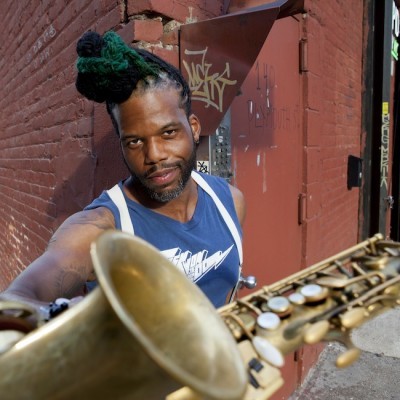
Benjamin possessed a fluid, round sound on the alto saxophone, and he was often most recognizable by the layers of electronic effects that he put onto the instrument.
Apr 2, 2024 12:59 PM
Casey Benjamin, the alto saxophonist, vocalist, keyboardist and producer who stamped his distinctive sounds on the…
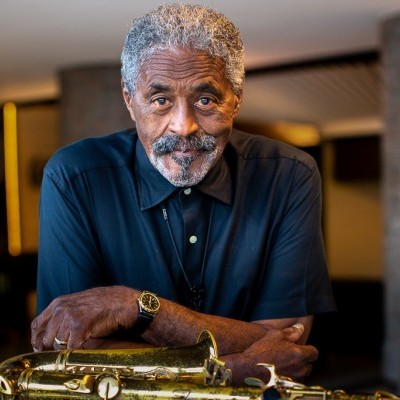
“He’s constructing intelligent musical sentences that connect seamlessly, which is the most important part of linear playing,” Charles McPherson said of alto saxophonist Sonny Red.
Feb 27, 2024 1:40 PM
“I might not have felt this way 30 to 40 years ago, but I’ve reached a point where I can hear value in what people…
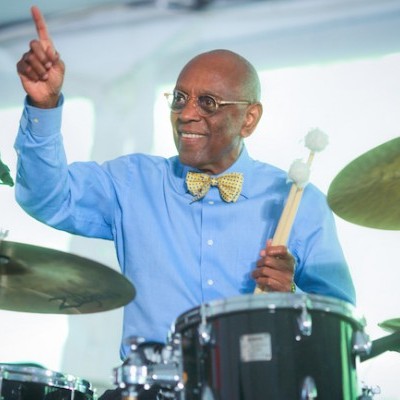
Albert “Tootie” Heath (1935–2024) followed in the tradition of drummer Kenny Clarke, his idol.
Apr 5, 2024 10:28 AM
Albert “Tootie” Heath, a drummer of impeccable taste and time who was the youngest of three jazz-legend brothers…
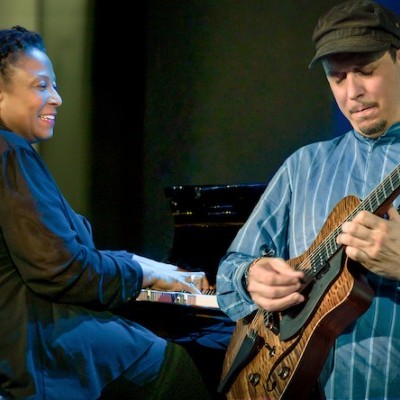
“Both of us are quite grounded in the craft, the tradition and the harmonic sense,” Rosenwinkel said of his experience playing with Allen. “Yet I felt we shared something mystical as well.”
Mar 12, 2024 11:42 AM
“There are a few musicians you hear where, as somebody once said, the molecules in the room change. Geri was one of…
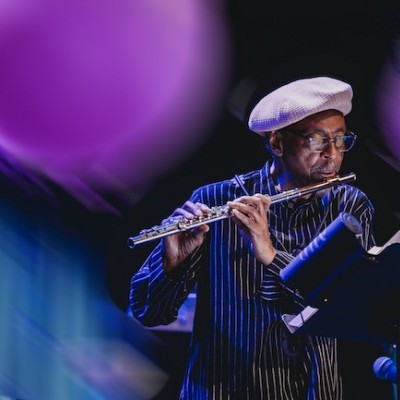
Henry Threadgill performs with Zooid at Big Ears in Knoxville, Tennessee.
Apr 9, 2024 11:30 AM
Big Ears, the annual four-day music celebration that first took place in 2009 in Knoxville, Tennessee, could well be…